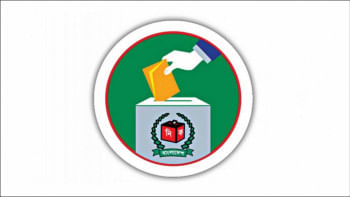End the culture of supernumerary promotions in civil admin

It is quite disturbing that the problems that plagued the administration under the ousted Awami League government continue to persist despite promises of change following the mass uprising. According to a report by this daily, since the interim government took charge in August, the number of officials in the upper echelons of public administration has ballooned to over three times the number of approved posts. As a result, there are now 467 officers against the 150 additional secretary posts, 861 officers against 250 joint secretary posts, and 1,599 officers against 450 deputy secretary posts. The persistence of supernumerary promotions—a legacy of the Awami regime—has made the administration even more top-heavy and imbalanced. While most of the new promotions may have been intended to address grievances from the AL era, it has ended up creating fresh challenges.
One doesn't need reminding of the consequences of such indiscriminate and unnecessary promotions without vacancies. Besides disrupting the natural hierarchy in the administration, this practice causes various logistical challenges, inefficiencies, and even inter-departmental discord, thanks to feelings of resentment by other officers. It also means increased burden on the tax-paying citizens. Meritocracy is the biggest casualty in such a situation, which is unacceptable. Currently, the public administration consists of 26 cadres, among which officers from the administration, foreign affairs, and police cadres get supernumerary promotions, with the administration cadre receiving the majority. In contrast, officials from other cadres are promoted only when positions are vacant.
The persistence of supernumerary promotions—a legacy of the Awami regime—has made the administration even more top-heavy and imbalanced. While most of the new promotions may have been intended to address grievances from the AL era, it has ended up creating fresh challenges.
The question is, why is the government allowing this deeply problematic culture instead of rectifying longstanding issues within the administration? Recovering from the fallout of supernumerary promotions may take years as promotions, once given, cannot be taken back. While addressing past grievances over deprived benefits and promotions for political reasons is important, it must not be at the expense of meritocracy and accountability. Our report cites some cases where officers, once punished for corruption, have been promoted after August 5. The committee formed to address grievances among administration cadre officers deemed to have been deprived in the past has also recommended compensations, including retrospective promotions, for 764 of them. Surely not all grievances are justified, or deserving of selective intervention, especially if it involves providing unethical benefits or forgetting past transgressions.
Compounding this issue is the controversy surrounding the recommendations of the Public Administration Reform Commission. The commission's recent proposals—including introducing exams for promotions to deputy secretary and joint secretary positions, and ensuring a 50:50 ratio between administration and non-administration cadres for deputy secretary promotions—have sparked outrage among some cadre associations. While these measures aim to promote fairness and competence, resistance from entrenched interests threatens to derail the reform drive.
This calls for decisive but carefully-thought-out interventions from the authorities, including the reform commission which must prioritise the interests of citizens while formulating policies. The higher authorities also must resist the pressure to appease any interest group, and undertake comprehensive reforms in public recruitment and promotion processes to restore public trust in the civil service.


 For all latest news, follow The Daily Star's Google News channel.
For all latest news, follow The Daily Star's Google News channel. 









Comments